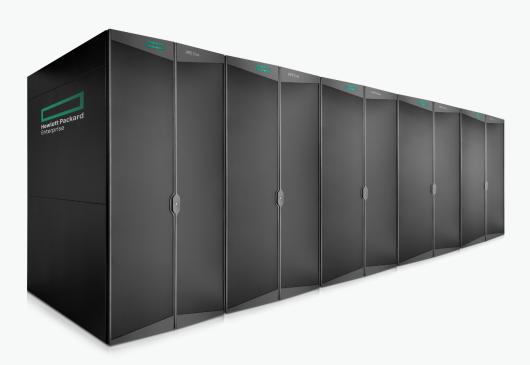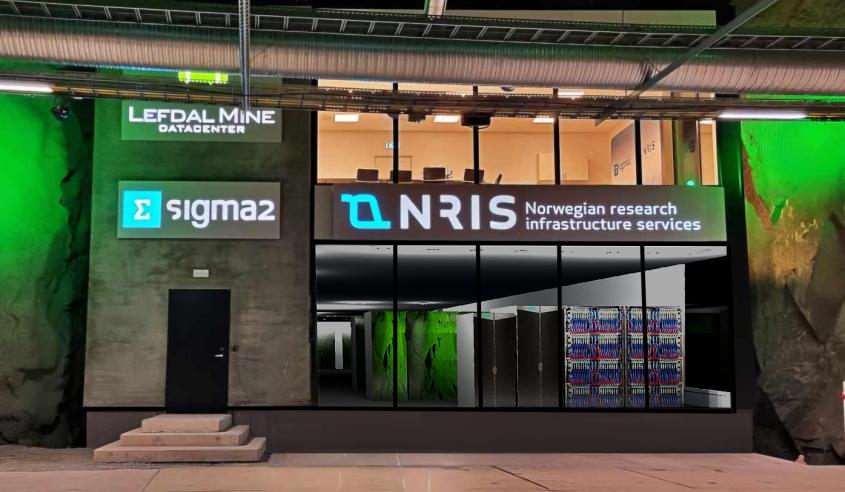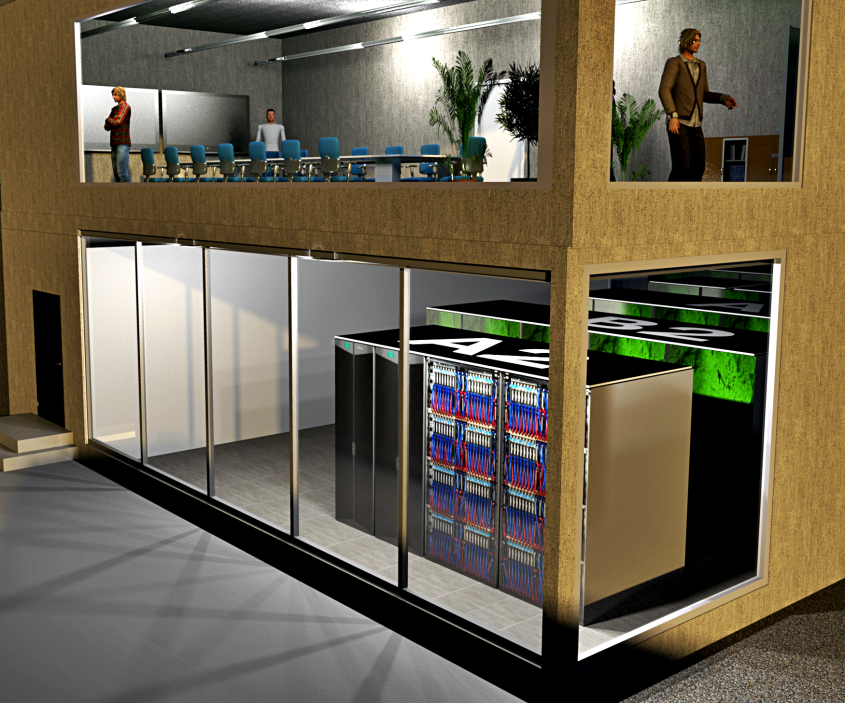The procurement competition to secure Norway's next supercomputer has now been conducted. Hewlett-Packard Norge AS (HPE) won the competition and has consequently been awarded the contract, which has a value of 225 million NOK.
This will be Norway's most powerful supercomputer ever and will give a significant boost to national AI research and innovation.

HPE will deliver an HPE Cray Supercomputing EX system equipped with 252 nodes, each with two AMD EPYC Turin CPUs. Each of these consists of 128 cores. In total, the system will consist of 64,512 CPU cores. In addition, the system will be delivered with 76 GPU nodes, each comprising of 4 NVIDIA GraceHopper Superchips (NVIDIA GH200 96 GB) in total, 304 GPUs. Supercomputer interconnection will be managed by HPE Slingshot Interconnect, while HPE Cray ClusterStor E1000 storage system provides 5.3 petabytes (PB) of storage.
All the compute nodes are placed in two HPE Cray Supercomputing EX4000 cabinets, both of which are fully filled and will weigh approximately four tons each. The compute nodes are directly liquid-cooled for the best possible heat transfer. This also provides the best possible potential for heat recovery. The contract also includes the possibility of expanding the system in the future, with 119,808 CPU cores and/or 224 GPUs.
Replaces Two Supercomputers and Meets Growing Demand for AI Resources
The new HPE Cray Supercomputer EX system will replace two of three national supercomputers owned by Sigma2 AS today. At the same time, it will cover increased growth in demand for computing power for artificial intelligence (AI) and machine learning (ML).
With a total of 304 NVIDIA GH200 GPUs, Norwegian research and innovation gain access to a computing capacity at least 17 times greater than what is available at the national level today. This will provide 10 Pflops of FP64 performance, over 150 Pflops of FP32 tensor core performance and more than 301 Pflops of FP16 tensor core performance. The latter is particularly important in connection with computations for AI. Even though the new supercomputer will be significantly more powerful than Sigma2's previous generation high-performance computing (HPC) system, power consumption will be reduced by more than 30 percent.

The new GPUs are compatible with a wide range of software and programming languages used by many research communities. And especially popular among researchers working within AI and deep learning.
—We are very satisfied with this contract. Now we can offer Norwegian researchers much-needed NVIDIA GPUs and meet the first wave of increased demand for AI resources. The new system will also be a welcome improvement for researchers in traditional HPC and will be significantly more energy efficient than the existing national supercomputers, says Gunnar Bøe, General Manager of Sigma2.
Installation in 2025
The installation will take place during the spring and summer of 2025 and will be opened to Norwegian researchers during the autumn of 2025. This will be Sigma2's first supercomputer to be installed in the Lefdal Mine Datacenter (LMD).
NIRD, the national storage system for research data, is already installed and in full production in the data centre. The new supercomputer will closely interact with this system.
—HPE's collaboration with Sigma2 at the Lefdal Mine Datacenter reflects our desire to advance Europe's scientific research capacity with state-of-the-art supercomputers. We are honoured to have been chosen to build Sigma2's next-generation supercomputer with powerful, end-to-end capabilities that will accelerate research efforts in Norway and solve global challenges - all supported by HPE Services, says Kristin Ottestad, Sales Director, HPE Norway.
The procurement process has been carried out in line with rules for public procurement. The procedure was carried out in two stages, with an initial qualification phase, followed by a tender and negotiation phase where qualified suppliers were allowed to submit their offers.
According to the award criteria in the competition, HPE delivered a superior offer. The contract is set to be formally signed in June.

